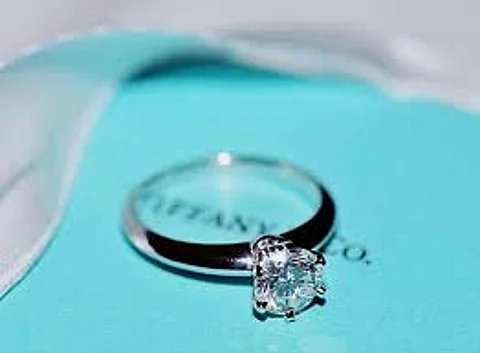

Tiffany & Co. welcomed the decision by the Delaware Chancery Court to grant Tiffany’s motion to expedite its lawsuit against LVMH Moët Hennessy-Louis Vuitton SE. Tiffany’s lawsuit seeks, among other things, an order requiring LVMH to abide by its contractual obligation under the November 24, 2019 Merger Agreement to complete its acquisition of Tiffany on the previously agreed terms.
The Court has set January 5, 2021 to begin a four-day trial.
Chairman of the Board Roger Farah said, “We appreciate the Court’s ruling today to expedite the process. Despite LVMH’s ongoing efforts to avoid paying the agreed-upon price for Tiffany, a trial on January 5, 2021 will hopefully lead to a ruling prior to the expiration of U.S. antitrust clearance on February 3, 2021 and enable us to protect our company and our shareholders. We will demonstrate to the Court that LVMH is in clear breach of its obligations under a valid and binding agreement and that their claim of a Material Adverse Effect is completely baseless. Tiffany has acted in good faith in full compliance with the Merger Agreement and will continue to do so.”
In seeking an expedited trial, Tiffany made a number of key points that will be no doubt become the focus of the upcoming trial:
LVMH Breached Its Obligation to Obtain Antitrust Approvals “as Promptly as Practicable”
In its opposition to Tiffany’s request for expedited proceedings, LVMH touted that “nearly all required antitrust approvals have been obtained,” but conveniently failed to mention that due to its months of foot-dragging, the already-obtained approvals will begin expiring on February 3, 2021.
LVMH seems to believe that its months of delay can be excused so long as antitrust clearances are achieved by the now extended termination date of November 24. However, before it set in motion an effort to slow the pace and seek a lower price for the deal, LVMH represented that all antitrust clearances could be obtained in the second quarter of 2020 and previously said the transaction could close by June 30, 2020. As a consequence, the parties originally agreed that the termination date for the transaction would be August 24. Tiffany believes prejudgment statutory interest should run from the end of June when the deal would have closed but for LVMH’s breach.
The Letter From the French Minister for Europe and Foreign Affairs Is Not a Legal Restraint
LVMH’s opposition to Tiffany’s motion to expedite focused on a letter that, based upon credible third-party reports, LVMH appears to have procured from the French Minister for Europe and Foreign Affairs. Neither LVMH nor the French Foreign Minister has provided a copy of this letter to Tiffany despite formal written requests that such letter be provided.
According to LVMH’s translation, the letter notes a U.S.-France trade dispute and suggests that LVMH “should” defer closing in support of France’s efforts to obtain leverage in negotiations with the U.S. LVMH nowhere contends that the Minister has any jurisdiction over the transaction, likely because (as LVMH’s counsel has noted) the European Commission “has exclusive jurisdiction pre-empting jurisdiction of the EU member states” regarding merger regulation.
According to multiple news outlets in both the U.S. and France, LVMH actively procured the letter in a bad-faith effort to gain leverage to escape or renegotiate the Merger Agreement. If true, the letter is clear evidence of a breach of the Merger Agreement by LVMH. Moreover, rather than immediately informing Tiffany of the letter—it waited over a week—LVMH admits it discussed the letter with the Minister without consulting with Tiffany as required by the Merger Agreement, another clear breach.
LVMH’s Claim of a Material Adverse Event Is Baseless
LVMH’s three-paragraph claim of a Material Adverse Event (MAE) is baseless with no factual, contractual or legal support. Tiffany experienced a single quarter of losses before returning to profitability and projects fourth-quarter earnings greater than those in the same period in 2019 —the exact opposite of LVMH’s claims of a “dramatic” and “durationally significant” downturn that “shows no sign of abating.” Moreover, the MAE definition in the Merger Agreement excludes all “changes or conditions generally affecting the industries in which
Tiffany Has Operated in the Ordinary Course
LVMH has offered no support for its claim that Tiffany “breached its obligation to operate in the ordinary course.” LVMH’s criticism of Tiffany’s payment of dividends ignores the fact that those payments were not just “technically permitted”; they were required by the Merger Agreement and excluded from any “ordinary course” limitations. In any event, dating back to shortly after its 1987 IPO, Tiffany has never missed or reduced a dividend payment, even during recessions, financial crises and the September 11 attacks, spanning 131 consecutive quarters. Tiffany has more than $1 billion in cash and has no liquidity constraints. The real reason LVMH complains about the dividend payments is that it wanted the cash left in the company for its benefit rather than paid to Tiffany shareholders.
Follow DiamondWorld on Instagram: @diamondworldnet
Follow DiamondWorld on Twitter: @diamondworldnet
Follow DiamondWorld on Facebook: @diamondworldnet
